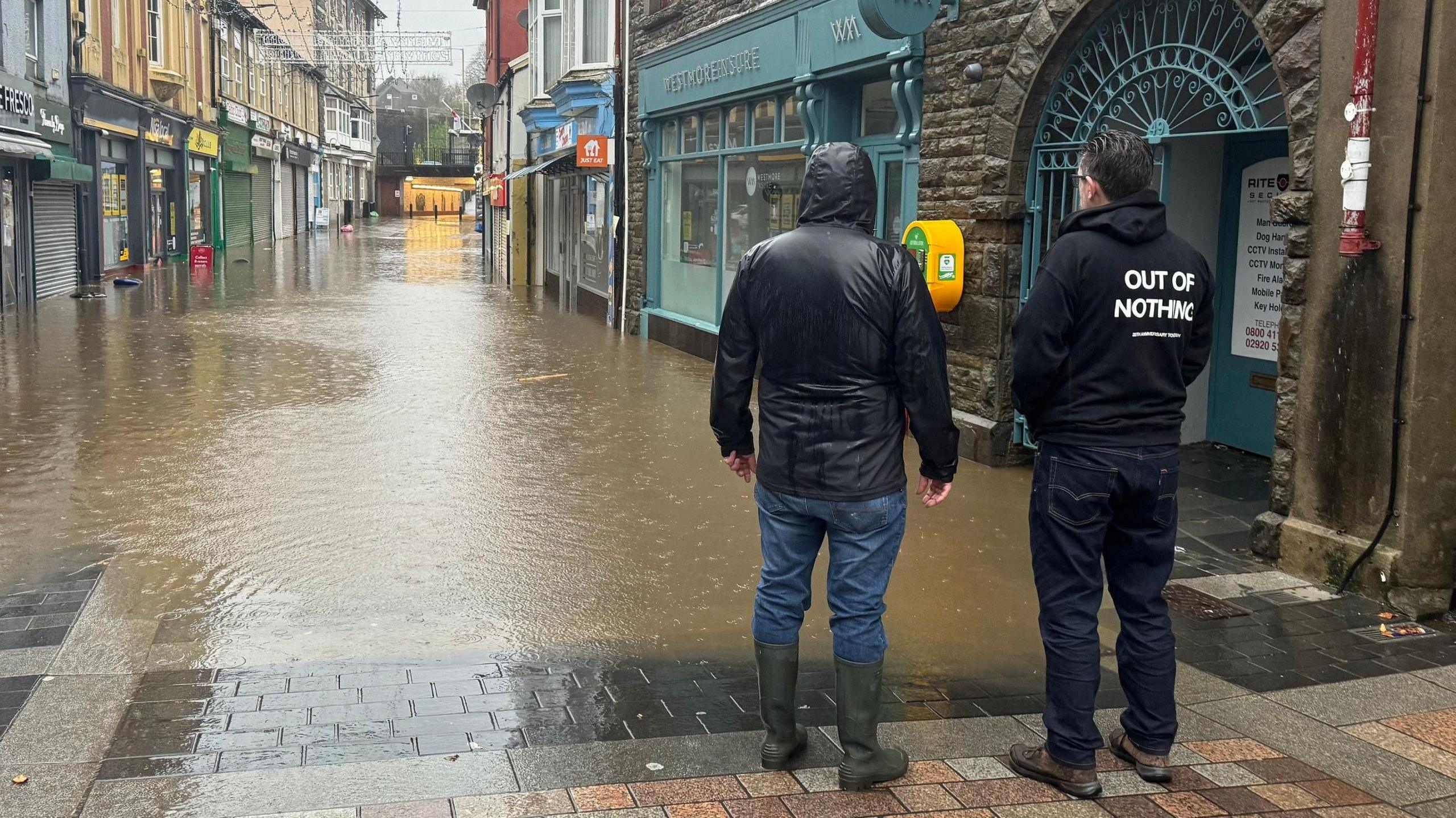The flood-plagued street where no-one can get insurance
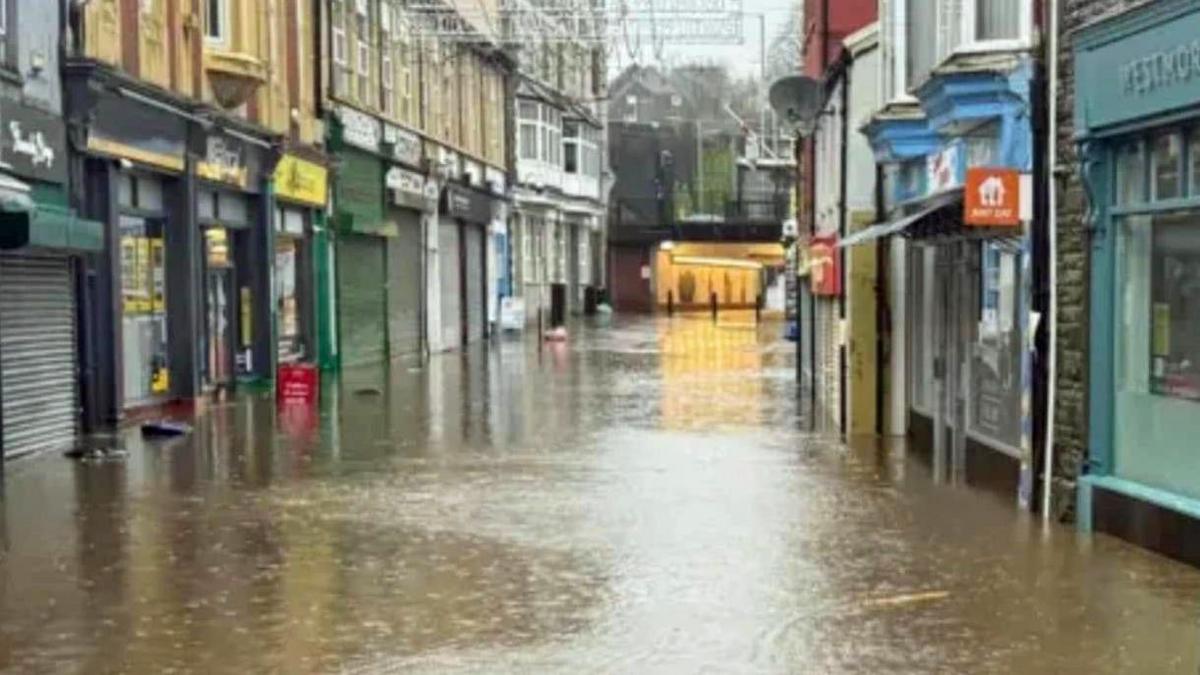
Mill Street in Pontypridd was completely flooded for the second time since 2020
- Published
A chip shop owner whose flood-plagued business has been left uninsurable says he may be forced to close down.
Abdul Chowdry's shop on Mill Street, Pontypridd, was hit when Storm Bert caused flooding in the town last Sunday.
He said he had to downsize after Storm Dennis, in February 2020, and was left unable to sell his business.
Other shop owners on Mill Street in the Rhondda Cynon Taf town have said they will have to pay out of their own pockets to recover from the damage caused by Storm Bert.
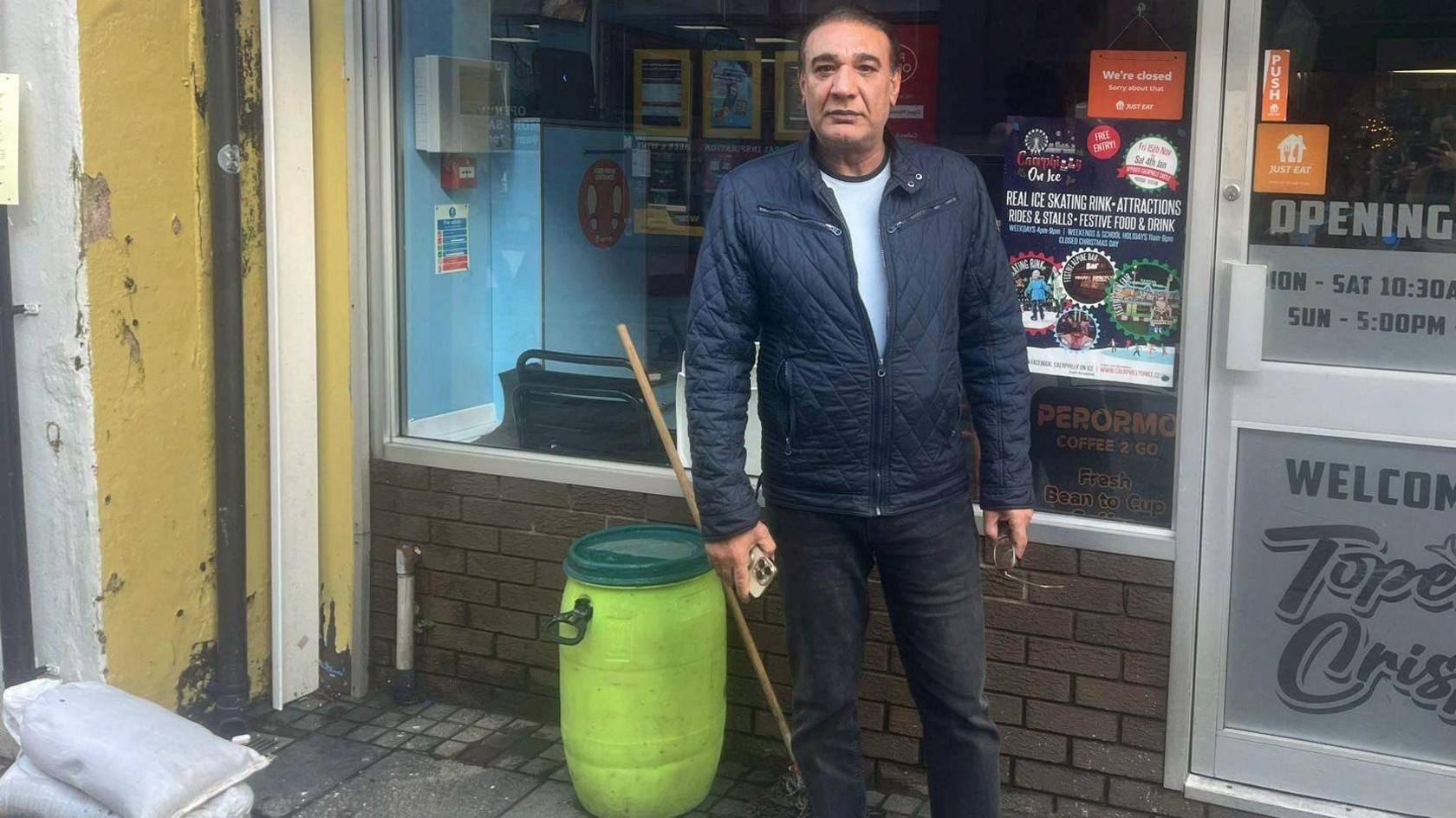
Abdul Chowdry says he doesn't know if his businesses can survive again, after pulling it back from Storm Dennis and then the Covid pandemic
Mr Chowdry has run the chippy for 10 years, but said he feels stuck as he cannot get insurance or any flood cover, with the latest storm costing about £10,000 in damages.
"I can't sell this place," he said.
"No-one will buy it, I won't even get what I paid for it.
"We used to be a busy street. But the last two to three years business is slow. We are just about surviving.
"I can only have part-time staff, can't afford to hire anyone. I used to work eight hours a day, now I work 10 to 12 hours, just to stand still."
On Wednesday, Mr Chowdry hoped to have his business back open, but his range had stopped working due to the flood water.
"In 2020, it took six months to get back to normal," he added.
"This time, there is no insurance at all. There's not as much damage this time but, financially, we are in trouble.
"I can't pay the wages at the moment, I will have to let staff go."
Better flood warnings needed, Wales FM says
- Published26 November 2024
Rugby club devastated by Storm Bert had no insurance
- Published26 November 2024
Several other business owners moved to Mill Street when previous tenants left after Storm Dennis - and the extent of the damage last weekend came as a shock.
Jeff Baxter, 54, who runs a bookshop, said: "In a way we jumped in their grave. At the time, we were aware that we won't get flood cover.
"But the talk during the previous floods was that storm Dennis was a 'once-in-a-50-years' kind of event.
"The rents were reasonable and cheap, so we went with it."
He said he had lost about £20,000-worth of stock in the floods.
"My attitude was that we get a lot of yellow warnings and they can pass over quite quickly," he added.
"It was all fine and then suddenly water started shooting through the drains."
He continued: "It was gutting, but the pictures of people's homes are 100 times worse. I had a warm home to go to, and books can be reprinted."

More than 50% of the stock of books at Storyville Books was lost in the flood
Mr Baxter had planned to move into the larger unit two doors down from his current shop in January.
But this will now be pushed back to at least mid-March.
He said the support of locals and the wider book community had been excellent, calling the situation a "wake-up call".
"People always want to blame other people, but I take responsibility. I don't have flood gates, I've been a little bit complacent and naïve," he said.
"With the effects of climate change, people want to bury their heads in the sand, they don't want to face reality."
However, he said a long-term solution to the insurance issue facing the street was crucial.
Mr Baxter added: "The fact companies get to put a blanket ban [on an area] is a problem and the only solution is government intervention.
"It's not that people are not prepared to pay but, after all Pontypridd has gone through, we could use that legislative support to give us a chance to help ourselves."
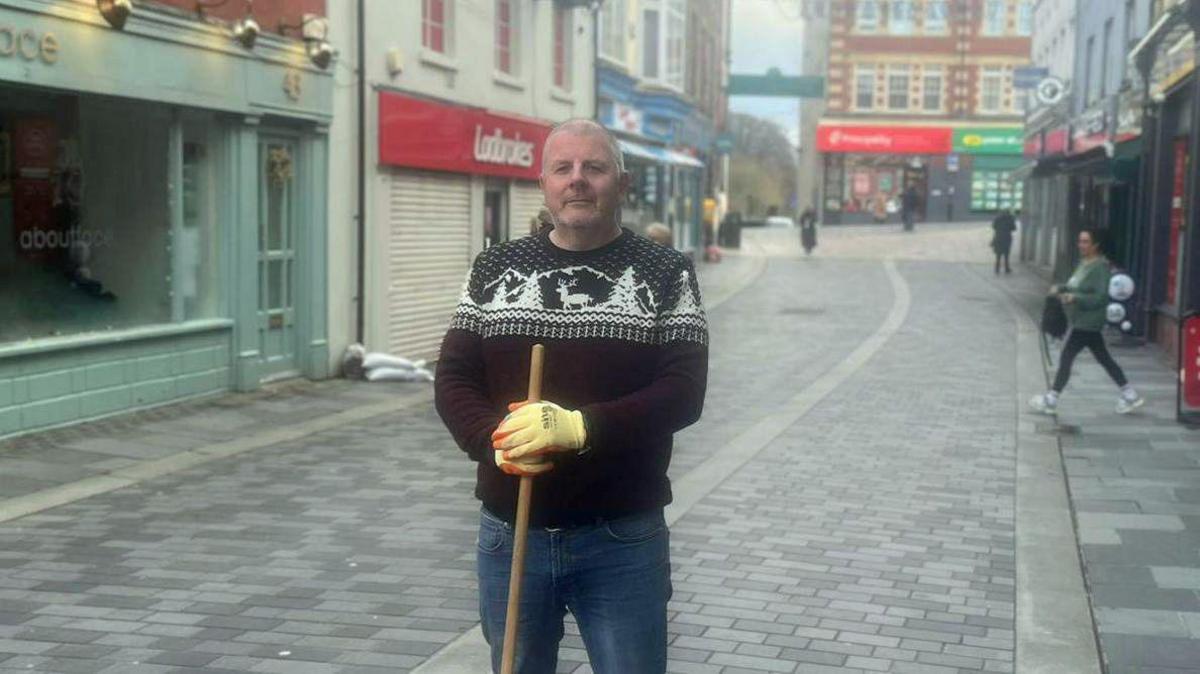
Jeff Baxter says the community came together to clean up quickly, but longer-term support is needed
Enrico Orsi, 33, who runs a small cafe with six employees, said the business he took over from was "devastated" after Storm Dennis.
He was on the street when Storm Bert hit, taking deliveries, which allowed him to put sandbags in place.
"If I hadn't been there on time, we would've had more damage than we did, which given that we can't get insurance for flood damage is a relief," he said.
"I think I got lucky, I don't think I would've been able to stay open if we had had more damage."
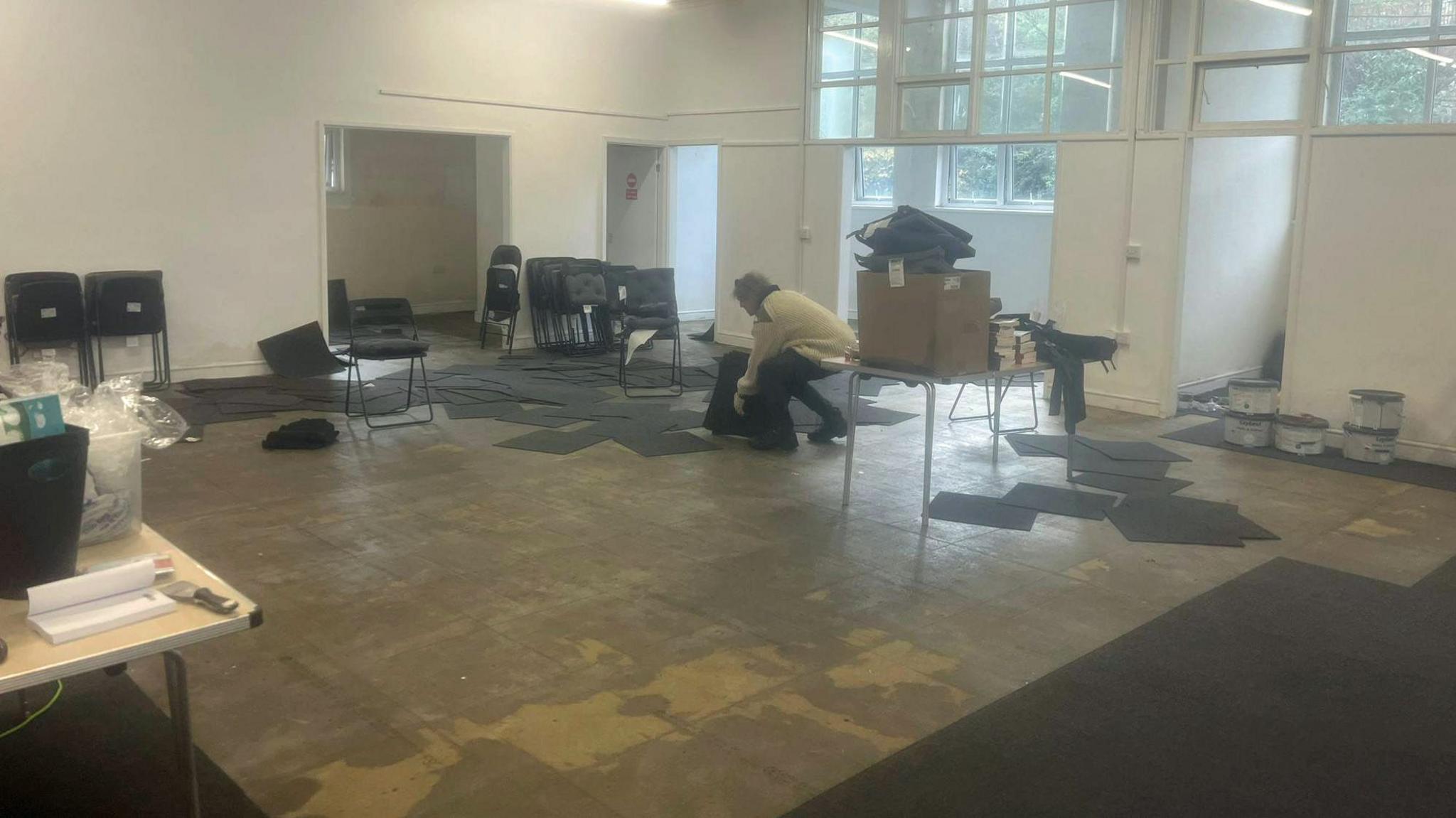
Volunteers have been helping Jeff and the book shop team lift all of the flooring in their new unit after river water came in through the basement
Jayne Coleman, 59, moved into her home store in March 2022 and explained Mill Street had the "unique problem" of experiencing flooding both from the drains at the front of the shops, and the River Rhondda to the rear.
"Most insurers don't cover this area... [or] the premium is prohibitive," she said.
While some furniture and stock was damaged, she believes she was lucky compared with neighbours.
"The system that had been put in place after Storm Dennis all seemed to fail," she said.
"Who's responsible?
"The blame game has already started... But where does the buck stop?"
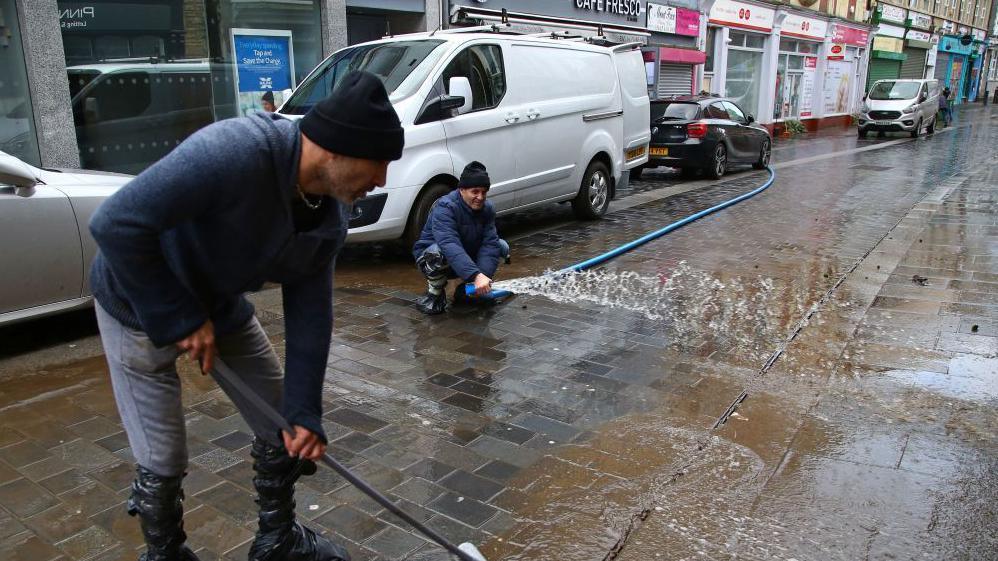
Businesses on Mill Street were previously hit by flooding during Storm Dennis in 2020
James Payne, 31, of Your Pontypridd - a not-for-profit organisation funded by local businesses - said it was worrying none of the shops had insurance.
"I think the first one, Storm Dennis, was so unexpected, it affected all of the town centre," he added,
"It's not as bad this time, not as many properties impacted.
"But we will be working for the businesses in the area to make sure they have all the support they need and can get."
Rhondda Cynon Taf council said it would offer a £1,000 Community Flood Recovery Grant, additional to a Welsh government's scheme, for both residents and businesses, as well as discretional funding for flood-prevention measures.
It vowed to work with all other organisations "to better understand what could or can be done to reduce the risk to properties and ensure that whoever is responsible can act on the findings".
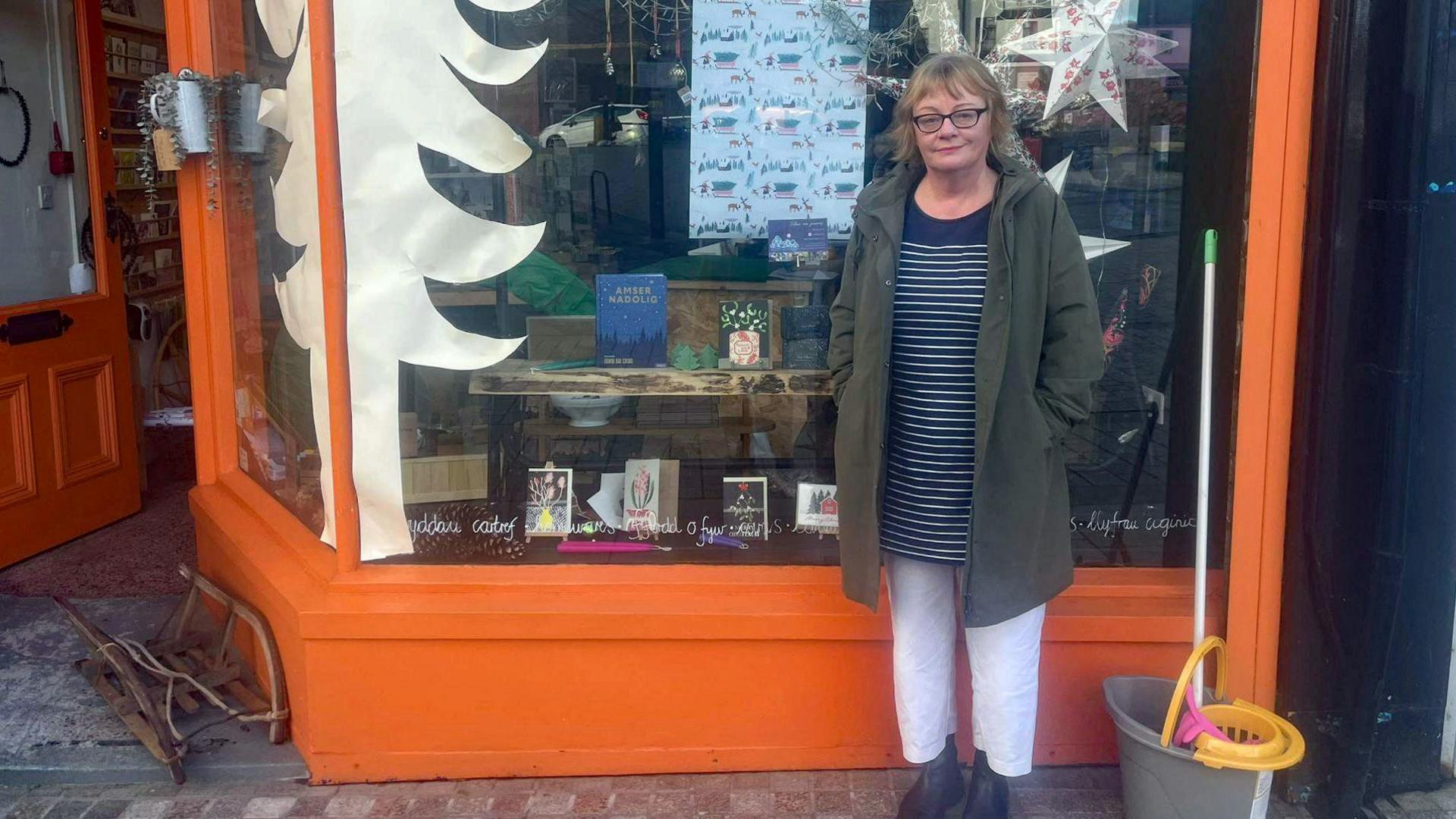
Jayne Coleman says a long-term solution needs to be found if independent businesses are going to stay in town centres such as Pontypridd
Dominic Driver, Storm Bert duty strategic manager for Natural Resources Wales (NRW), said steps were taken in the week before the adverse weather began, "to ensure we were ready to tackle whatever the storm would bring".
Mr Driver said a flood alert for Pontypridd was issued on Saturday, "giving people advance warning that flooding was possible, and to be prepared", plus an additional warning on Sunday morning when "the river [Taff] reached the flood warning trigger level".
He said "recovery and review work" would now follow.
On Politics Wales, cabinet secretary for climate change Huw Irranca- Davies was asked if NRW was sufficiently funded to meet demand, and he said record funding had gone into the organisation.
He also pointed at money for various schemes and for working with communities.
"One of the key things with communities, homes and businesses is how can we do those clever interventions so that people can be back on their feet rapidly in their homes, and in their businesses," he added.
A Welsh Water spokesperson said: “We sympathise and appreciate the frustration of businesses on Mill Street who experienced flooding as a result of Storm Bert.
"With over a month’s rainfall in a short period, our sewers remained clear and operated as designed. While the sewers did not cause any flooding, we know that wider drainage networks were overwhelmed during the event and we will continue to work with Rhondda Cynon Taf Council and other agencies on how best to manage future flooding events."
Rhondda Cynon Taf council has been asked to comment but, in a statement on Friday, it said it was reviewing what had happened.
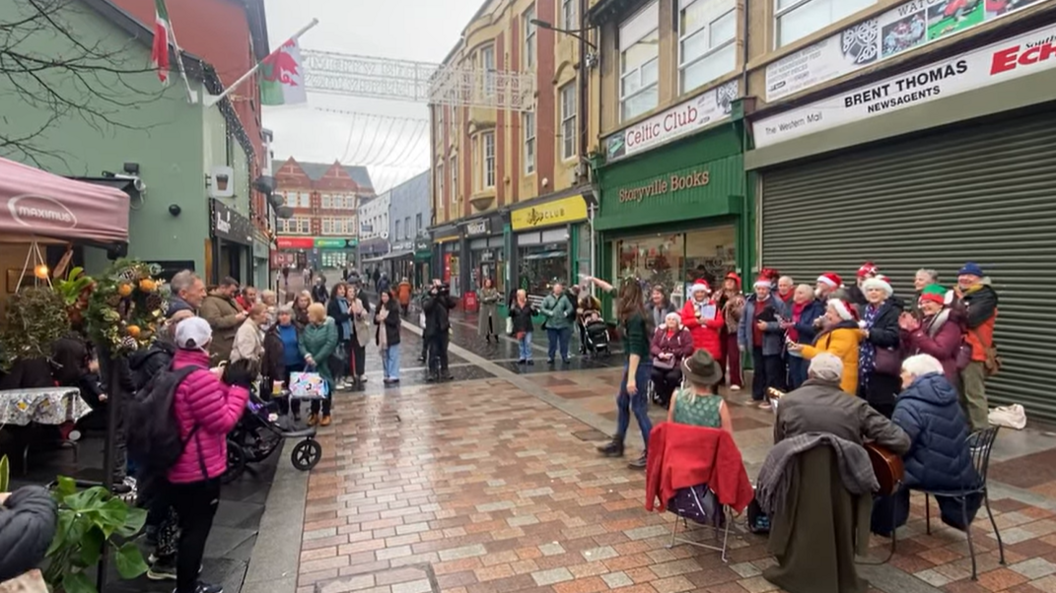
The businesses on Mill Street rallied throughout the week to be ready to reopen in time for their Christmas market comeback, one week on from the floods
The Met Office said it was important to note there was a difference between its severe weather warnings and the flood alerts, but added: "A full assessment of the forecast and warning strategy will take place with our partners... lessons learned will look at how links in the chain can be improved to help the UK prepare even more for weather impacts especially as they will increase with climate change."
The Welsh government said it was offering affected households up to £1,000, adding businesses should contact Business Wales, with further dedicated support to be considered "as the impact of Storm Bert becomes better understood".
It said the UK government, which has been asked for comment, set private insurance parameters and it was not in the control of the Welsh government.
Related topics
- Published25 November 2024
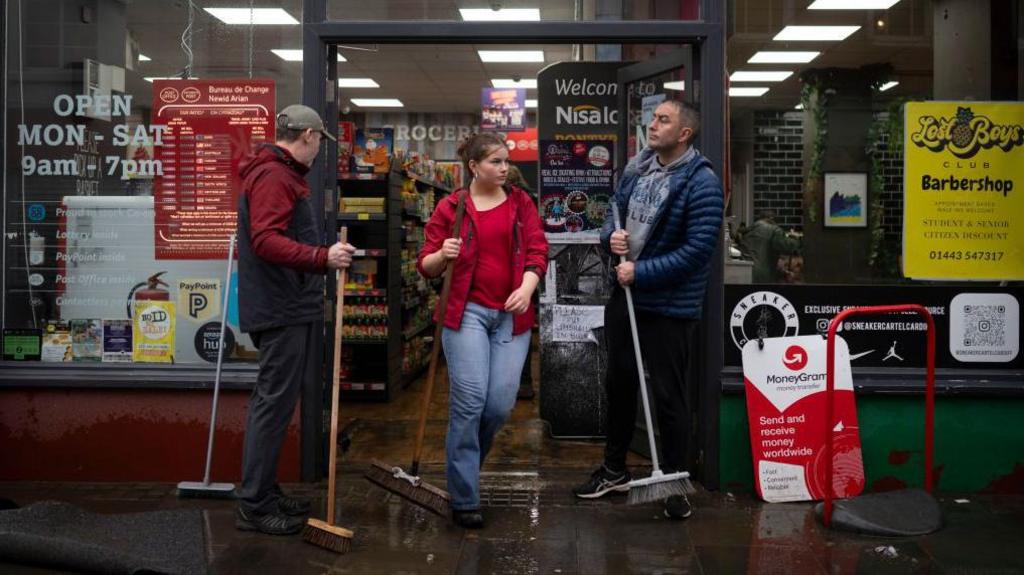
- Published25 November 2024
